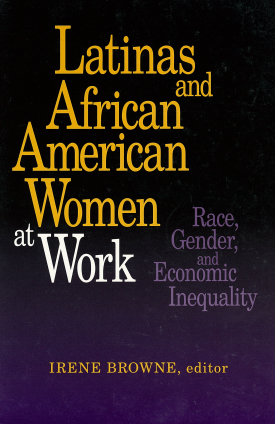
Trust in Schools
About This Book
A Volume in the American Sociological Association’s Rose Series in Sociology
Most Americans agree on the necessity of education reform, but there is little consensus about how this goal might be achieved. The rhetoric of standards and vouchers has occupied center stage, polarizing public opinion and affording little room for reflection on the intangible conditions that make for good schools. Trust in Schools engages this debate with a compelling examination of the importance of social relationships in the successful implementation of school reform.
Over the course of three years, Bryk and Schneider, together with a diverse team of other researchers and school practitioners, studied reform in twelve Chicago elementary schools. Each school was undergoing extensive reorganization in response to the Chicago School Reform Act of 1988, which called for greater involvement of parents and local community leaders in their neighborhood schools. Drawing on years longitudinal survey and achievement data, as well as in-depth interviews with principals, teachers, parents, and local community leaders, the authors develop a thorough account of how effective social relationships—which they term relational trust—can serve as a prime resource for school improvement. Using case studies of the network of relationships that make up the school community, Bryk and Schneider examine how the myriad social exchanges that make up daily life in a school community generate, or fail to generate, a successful educational environment. The personal dynamics among teachers, students, and their parents, for example, influence whether students regularly attend school and sustain their efforts in the difficult task of learning. In schools characterized by high relational trust, educators were more likely to experiment with new practices and work together with parents to advance improvements. As a result, these schools were also more likely to demonstrate marked gains in student learning. In contrast, schools with weak trust relations saw virtually no improvement in their reading or mathematics scores.
Trust in Schools demonstrates convincingly that the quality of social relationships operating in and around schools is central to their functioning, and strongly predicts positive student outcomes. This book offer insights into how trust can be built and sustained in school communities, and identifies some features of public school systems that can impede such development. Bryk and Schneider show how a broad base of trust across a school community can provide a critical resource as education professional and parents embark on major school reforms.
ANTHONY S. BRYK is Marshall Field IV Professor of Urban Education and Sociology, University of Chicago.
BARBARA SCHNEIDER is professor of sociology and human development, University of Chicago.
RSF Journal
View Book Series
Sign Up For Our Mailing List
Apply For Funding

Latinas and African American Women at Work
About This Book
One of Choice magazine's Outstanding Academic Books of 1999
Accepted wisdom about the opportunities available to African American and Latina women in the U.S. labor market has changed dramatically. Although the 1970s saw these women earning almost as much as their white counterparts, in the 1980s their relative wages began falling behind, and the job prospects plummeted for those with little education and low skills. At the same time, African American women more often found themselves the sole support of their families. While much social science research has centered on the problems facing black male workers, Latinas and African American Women at Work offers a comprehensive investigation into the eroding progress of these women in the U.S. labor market.
The prominent sociologists and economists featured in this volume describe how race and gender intersect to especially disadvantage black and Latina women. Their inquiries encompass three decades of change for women at all levels of the workforce, from those who spend time on the welfare rolls to middle class professionals. Among the many possible sources of increased disadvantage, they particularly examine the changing demands for skills, increasing numbers of immigrants in the job market, the precariousness of balancing work and childcare responsibilities, and employer discrimination. While racial inequity in hiring often results from educational differences between white and minority women, this cannot explain the discrimination faced by women with higher skills. Minority women therefore face a two-tiered hurdle based on race and gender. Although the picture for young African American women has grown bleaker overall, for Latina women, the story is more complex, with a range of economic outcomes among Cubans, Puerto Ricans, Mexicans, and Central and South Americans.
Latinas and African American Women at Work reveals differences in how professional African American and white women view their position in the workforce, with black women perceiving more discrimination, for both race and gender, than whites. The volume concludes with essays that synthesize the evidence about racial and gender-based obstacles in the labor market.
Given the current heated controversy over female and minority employment, as well as the recent sweeping changes to the national welfare system, the need for empirical data to inform the public debate about disadvantaged women is greater than ever before. The important findings in Latinas and African American Women at Work substantially advance our understanding of social inequality and the pervasive role of race, ethnicity and gender in the economic well-being of American women.
IRENE BROWNE is associate professor of sociology and women's studies at Emory University.
CONTRIBUTORS: Delores P. Aldridge, John Bound, Camille Z. Charles, Karen Christopher, Aixa N. Cintron-Velez, Mary Corcoran, Laura Dresser, Kathryn Edin, Paula England, Susan Gonzalez Baker, Colleen M. Heflin, Elizabeth Higginbotham, Ivy Kennelly, Joya Misra, Kathleen Mullan Harris, Lori L. Reid, Barbara F. Reskin, Belinda L. Reyes, Lynn Weber.
